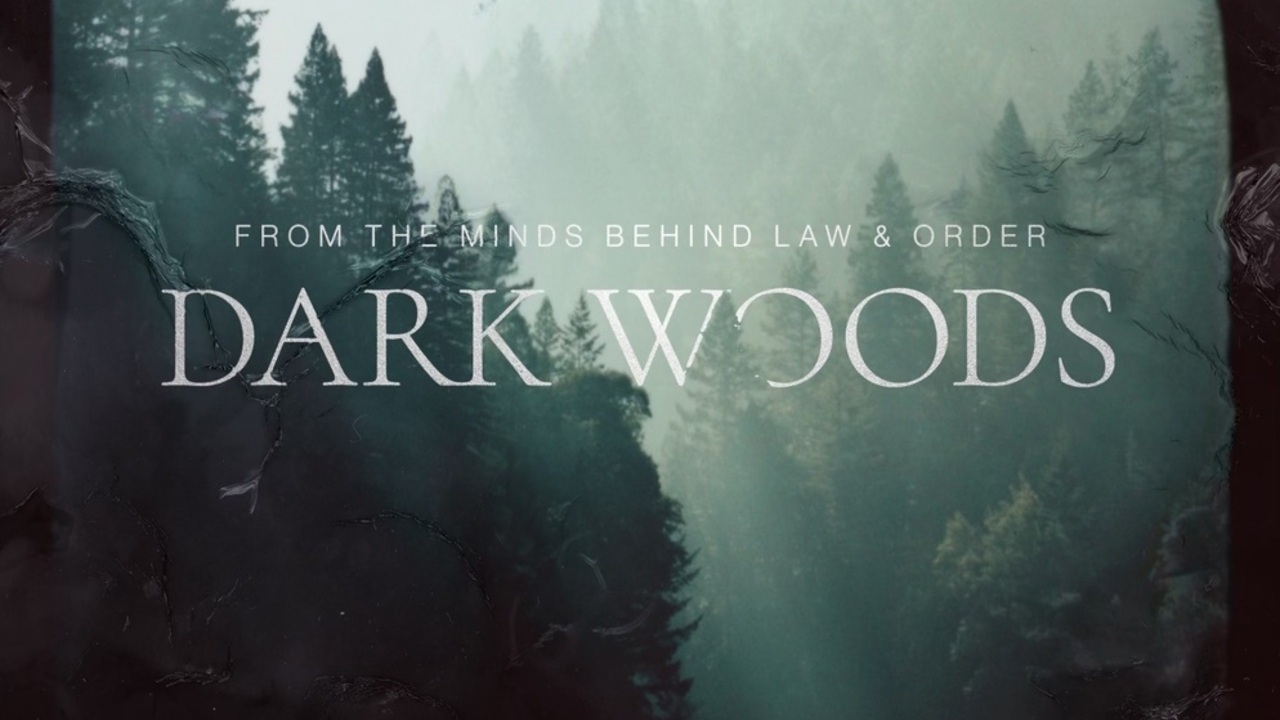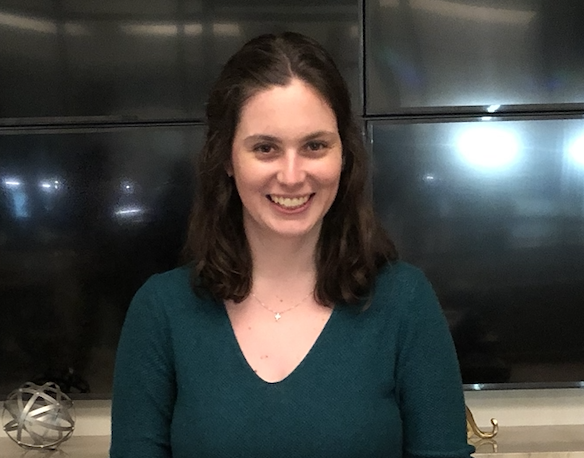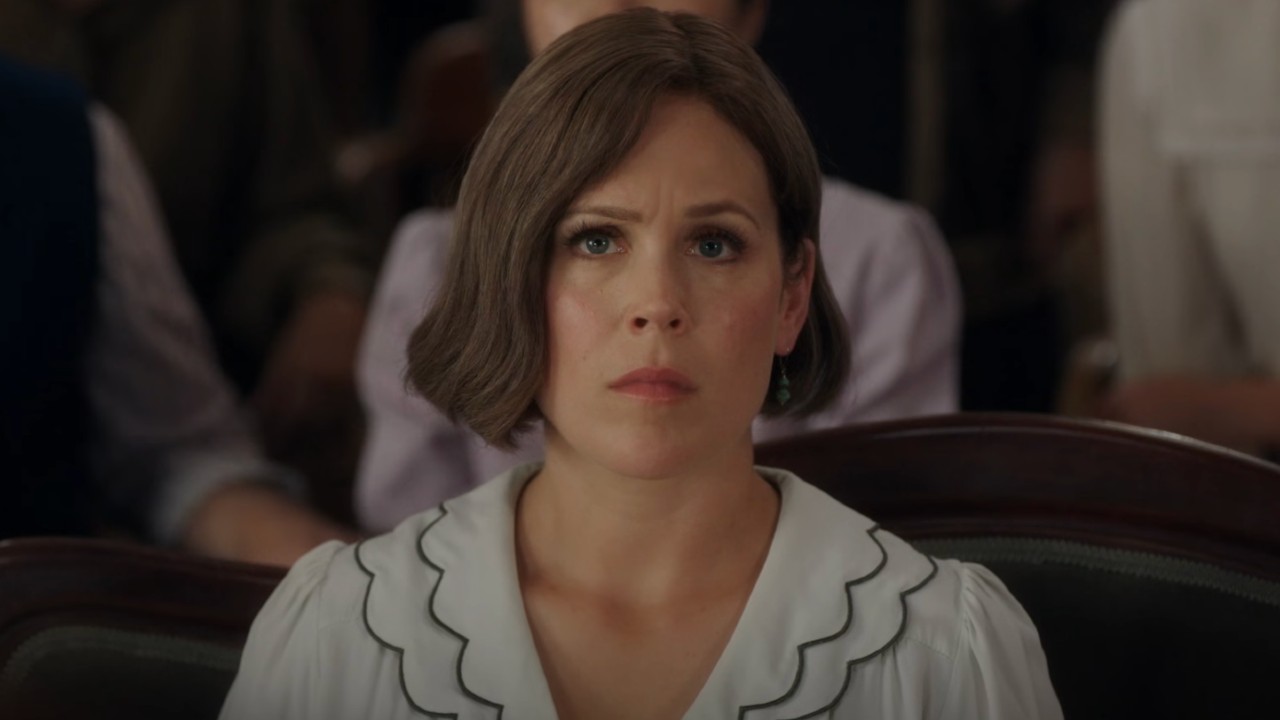How Chicago Fire's Monica Raymund Returned To Wolf Entertainment For Dark Woods' Thrilling Take On A Real-Life Threat
Dark Woods executive producer Elliot Wolf revealed how the podcast series recruited Monica Raymund, and the real-life threats that inspired the scary story.

Wolf Entertainment, which is behind some of the biggest hits on television, has now launched Dark Woods as a scripted project shedding light on an important issue and real-life threat. The podcast is centered on some mysterious events in the California redwood forest following the death of a young woman, leading to some big reveals about illegal activities. It also stars some Wolf Entertainment veterans with Chicago Fire’s Monica Raymund as well as Law & Order: LA’s Corey Stoll, plus Veep’s Reid Scott. Dark Woods executive producer Elliot Wolf spoke with CinemaBlend about bringing in Raymund, the real-life issue that’s getting the Wolf Entertainment treatment, and more of what’s on the way with Dark Woods.
Two episodes of Dark Woods have released so far to set up the story of Monica Raymund’s Laura and Corey Stoll’s Mark following the death of a young woman in the California redwood forest, which kicks off a mystery that could change the lives (and livelihoods) of a lot of small town locals due to drug cartels operating within the national park. Elliot Wolf shared that the issue that inspired the development of Dark Woods as a “character drama that's set on the backdrop of some real world issues" resulted in some creative strategies for production, including with the cast:
It's been quite a while in the making. The pandemic definitely slowed us down, but introduced some unique challenges, which I think the team overcame in some innovative ways. We handled production completely remotely. So anybody that you're hearing in the podcast was not actually in the same room with the other characters. We recorded all across the country, sending remote kits to our cast. Monica Raymund was recording on the set of Hightown, her series for Starz. Corey Stoll was in New York and Reid Scott was in LA. I mean, it's a testament to our director, Takashi Doscher, to be able to direct them all, and stitch all the performances together.
Dark Woods was in development prior to production complications due to COVID-19, but Elliot Wolf and the rest of the team behind Dark Woods made it happen despite not being able to record the cast in person. Remote recording wasn't necessary with Wolf Entertainment's first scripted podcast, Hunted, that starred Parker Posey. Monica Raymund managed to pull double duty by recording her role as Dark Woods’ Laura while also working on Starz’s Hightown, with her co-stars spread across the country. According to Elliot Wolf, there were some big reasons why Raymund and Corey Stoll were top picks for the lead roles:
Monica is obviously really close with the entire Wolf team, not only from starring in Chicago Fire, but also directing episodes of several Wolf shows. So we have a great relationship with her. Corey worked with us in Law & Order: Los Angeles. And I had been a fan of Reid for a while because I watched Veep. So it was an awesome opportunity to work with all three of them. The casting process in itself was sitting down with a team and thinking about who would be right for these roles. You know, going back to what I said beforehand, the story is as much of a character drama as it is a thriller, and especially knowing that we were going to be doing remote production, we really needed some actors and actresses that could shine through. And who better to trust than the people that you've already worked with and know can hit out of the park? So they were our first calls.
Anybody who has already checked out Dark Woods can probably agree that Monica Raymund and Corey Stoll were great choices as the first calls to play Laura and Mark, not to mention Veep's Reid Scott. But how can even a company like Wolf Entertainment set up a recording studio for an actress while she’s off filming a whole other show in a whole other place, like Raymund with Hightown? Elliot Wolf detailed how the podcast pulled it off:
We actually transformed Monica's closet in her place on location, and we made it a remote sound studio. So we sent her a full audio kit and then hung up, for lack of a better term, drapery around the closet to soundproof it and totally transformed it into a studio. It was fun, she had a great time with it.
Who says you can’t star in a live-action series while also recording a scripted podcast series, when you can have a studio in your own closet? Dark Woods got creative to make it happen, and has a solid cast to tell a story about some important issues. Any fans of Wolf Entertainment TV shows are likely familiar with stories that are based on crimes that actually happened, but cartels operating out of parks is a real-world issue that hasn’t gotten much mainstream attention to this point. Elliot Wolf explained the inspiration behind crafting a scripted storyline based on this issue:
The real-world issues are an interesting place to start because it was a big inspiration for us when thinking about the series. We were really enamored with the idea of doing something with the national parks, with the basic premise that our national and state parks aren't under local jurisdiction. It's not your local police enforcing laws within the parks. It's federal lands. So it's federal employees. With that in mind, it's the National Park Service and the Department of Fish and Game. We thought that was a really interesting setup for a story and looking at some of the issues that have plagued national parks in recent years. There's been stories pouring in about the Mexican cartel moving in and building out what started as clandestine marijuana grow operations that are now small towns with guns, drugs. I mean, it's crime on the land that we hold most dear.
Wolf Entertainment may have two Law & Order shows and Chicago P.D. as crime dramas on NBC, and three crime FBI shows on CBS, but nothing quite like what Dark Woods is delivering as a serialized podcast with the crime happening in a national park adjacent to a small town. The situation is also sticky, with some characters more willing to prioritize the park than others, and Laura in particular stuck between her constituents as a councilwoman and protecting the redwoods.
The reality of cartels operating marijuana grows out of unexpected places isn’t the most well-known issue, and when I mentioned that the issue hasn’t received too much mainstream attention to this point, Elliot Wolf explained:
Your Daily Blend of Entertainment News
There's been people talking about it here and there for the past couple years, but it's flown under the radar. And when you think about the potential harm that these grow sites are causing, not only from the drugs that are being grown, and the violence that results from them. On national park land, it's the chemicals as well, they're using illegal pesticides that have been banned by the EPA for over 20 years. And they're using them in a really careless way. So they're getting into the watershed, and to date, they've only killed plants and animals. But as the problem worsens, it's conceivable that those pesticides and chemicals are going to start to kill people who unknowingly drink from the creek bed, go swimming, whatever it may be, and that's where our story starts.
It’s not just a matter of people illegally growing marijuana, but how they can go about it, in certain cases. Dark Woods’ story seems to be the worst case scenario of what can potentially go wrong with an illegal grow, and the podcast plot is definitely still thickening. A young woman has died, the wildlife is being affected, and the forest is evidently a pretty dangerous place for the characters.
It’s also telling a story that has been documented by this point in 2021, but was all but unheard of not that long ago. The story is set back in 2004, and Elliot Wolf explained the idea in setting Dark Woods nearly twenty years in the past:
The idea was that today, this is known to a certain extent, there's been some press about it. To your point, it hasn't been well documented, as one would imagine. But conceivably, the National Park Service and Fish and Game department would be aware that these grow sites exist when the story is set. That's not the case. So the mystery is that much greater to the characters. They don't understand that this bigger threat within the park is looming in the Mexican cartel.
While secret marijuana grow sites and pesticides getting into the watershed may not be too widely known, the California redwood trees are familiar to plenty of people, whether they’ve gotten to visit in real life or simply seen images or videos. When I noted that using such an iconic setting could bring up some strong visuals for podcast listeners, Elliot Wolf revealed that was actually part of the plan:
That was a huge piece of it for us, too. I mean, I don't know about you, but whenever I'm in the forest alone, little let alone the redwoods, where you feel so small, it's a little scary. The idea that no one's there, if anything were to go wrong. You are truly alone. And that accompanied by the fact that it's the redwoods and the redwoods are so big and sort of make you feel small, was a really fun and interesting setting to tell a story in.
Two episodes of Dark Woods are already available, in case you haven’t checked the podcast series out just yet. You can subscribe on Apple, Spotify, and other podcast platforms now, with new installments releasing weekly. For more from Wolf Entertainment, you can find the three FBI shows on Tuesdays on CBS, the three One Chicago shows (including Monica Raymund’s former TV home) on Wednesdays on NBC, and both Law & Order: SVU and Law & Order: Organized Crime on NBC Thursdays in the fall TV lineup.

Laura turned a lifelong love of television into a valid reason to write and think about TV on a daily basis. She's not a doctor, lawyer, or detective, but watches a lot of them in primetime. CinemaBlend's resident expert and interviewer for One Chicago, the galaxy far, far away, and a variety of other primetime television. Will not time travel and can cite multiple TV shows to explain why. She does, however, want to believe that she can sneak references to The X-Files into daily conversation (and author bios).
